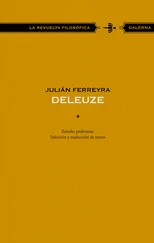“How do you know?”
“Intuition.”
She taps her pirate headscarf and Schilf nods approvingly because she has located her intuition in the depths of her brain rather than between her diaphragm and pancreas, like most other people.
“Someone like him,” she says, pointing a false nail at Schlüter’s half-covered face, “either does things properly or not at all. It was pure coincidence that the botched job with the steel cable worked.”
Schilf suppresses a comment on the nature of coincidence, and hurries to ask his next question. “Who did it, then?”
“My name is Kodak,” the parrot says.
“Agfa,” Schilf corrects.
“That bird is a pain,” the waitress says. “Either Schlüter got someone to do it…” She sinks into thought.
Schilf is afraid that her battery is dying. “Or?” he prompts.
“Or the death of that one has absolutely nothing to do with this one. We have stuff without sugar if you want something to eat.”
She turns away and walks toward the entrance of the café with precise movements in time with the rhythmic slapping of her flip-flops. They ought to install etymological dictionaries on their robots’ hard drives, Schilf thinks. But other than that, they seem to work very well.
“Look out.”
Schilf has the impression that the bird is trying to tell him something. He gazes at the parrot thoughtfully as it nibbles away at a stalk of millet. When nothing else happens, he puts the file away and takes out his mobile phone. The rail information service informs him that the first train from Airolo won’t arrive in Freiburg until eleven o’clock that morning.
MAIKE IS ONBOARD THE FIRST TRAIN from Airolo, feeling like a passenger on a ghost train. It judders its way along a labyrinthine course while a series of dioramas passes before the windows. White goats on shiny green—one of them raising and lowering its head. Cable cars gliding in front of a panorama of mountain peaks. An old man swinging an ax next to his wooden hut. Well-fed cows advertising political neutrality. In small countries the monstrous lies in the details.
When Maike is especially happy or unhappy, she makes lists. She has a list of the best days in her life (her wedding is number one), her greatest disasters (not many entries), her most important successes (founding the Gallery of Modern Art), and her most embarrassing moments (a new cleaning lady throwing a pile of broken chairs out onto the street shortly before a gallery reception). Maike ranks favorite dishes, most annoying people, and her dearest wishes. Her memory is a well-ordered storehouse in which an archivist categorizes every new event. She can say exactly how she feels about almost everything that has happened to her. Keeping lists is her own way of making an inventory of her memories. As of yesterday evening, there is a new list: of puzzling telephone calls.
After the receptionist had put the call through to her room, it had taken Maike an entire minute to realize that the stammering caller was her husband. He said to stay calm so many times that Maike finally started panicking. It was only when she sternly told him to stop it that he told her his confused story. Liam had been kidnapped but was perfectly fine in scout camp after all. Sebastian would pick him up early tomorrow morning. Maike had better break off her holiday, too. It wasn’t actually necessary, but you never know. Perhaps the police might want to ask her a few questions.
Sebastian’s outpouring ended midsentence, like a broken tape. There was a white noise over the line while she remained silent. Oskar had once said that the whole of space was filled with white noise. Maike had heard from someone else that such noise was caused by bugging devices. For a crazy moment, she wondered if they both meant the same thing.
When she had calmed down sufficiently to ask what on earth had happened, she heard Sebastian gulping hard on the other end of the line. He asked her to believe him—first he begged her, then he suddenly started screaming. He could call Oskar instead, Oskar would stand by him. Maike’s shock turned to rage. She demanded that he pull himself together. She got no reply. Finally she realized that Sebastian was about to fall asleep while on the phone. This shocked her more than anything he said. She promised to take the first train to Freiburg in the morning. He swore that nothing had happened to Liam, then the line was cut.
Maike leans back across her seat and stretches her legs. In the seat opposite, a nun has wound her rosary so tightly around her hand that it has left red marks on her knuckles. The nun tries to engage everyone walking past her in conversation, as if she wants to prove to the poor Lord Jesus that mankind has no desire to be left in peace. Love thy neighbor. Maike shudders. When the dapper conductor speaking pretty Swiss German checks her ticket, she thanks him profusely.
She did not sleep well the previous night and spent a great deal of time imagining all kinds of different scenarios. A failed kidnapping attempt, perhaps, or maybe Liam got lost in the forest and has been found. Or perhaps Sebastian had had a nightmare and called her still half asleep, and would be thunderstuck when she walked through the door.
As morning approached, her imagined scenarios lost their definition, her theories grew wilder, and her questions led nowhere. Her thoughts began to work in images and to revolve around a night ten years ago, as if it were still the cause of every dark, incomprehensible part of Maike’s life. It was the evening of the day that stood at number one in her list of favorite memories.
A function room misty with cigarette smoke. Happy crowds swaying to music. Friends, family, and an angular figure among them who wanders the room aimlessly, anxiously, conspicuously, like a shadow that has lost its master. Maike’s feeling of delighted terror (or is it terrible delight?) every time this shadow bumps into the newly minted groom in the crowd. Proud and cold, the two men look each other in the eye. At some point Maike—incredibly drunk by then—tugs the sleeves of their frock coats and tries to get them to dance à trois . The guests clap and hoot. Oskar tears himself away and leaves the party without a word. A close-up of Sebastian’s face as he kisses Maike with mouth wide open almost as soon as Oskar has left.
In the first year of their marriage, Maike was constantly prepared for something to break free and rise from the depths of the man who smiled at her every morning across the breakfast table. Something that could not be conquered by goodwill and understanding. But nothing of the sort happened. From an anomaly, Sebastian had turned into a good husband and a loving father. He was the youngest professor on faculty at Freiburg University. Maike opened her gallery and made sure that Oskar came to dinner regularly. The family got wrapped up in the everyday.
For a long time now, Maike has thought of herself as part of a happy family. Regardless of how well or how badly their life together is going, there is one thing she has never doubted since Liam’s birth: she and Sebastian inhabit the same world. And she is prepared to do anything to keep it that way.
Perhaps, thinks Maike, looking at an Asian woman who is pushing a metal trolley down the aisle, perhaps this is what is waiting at home for me. The disaster I have feared more or less consciously for so many years. Perhaps it even has a woman’s name, like a hurricane. Perhaps my own name.
Her thoughts are about to tip over into the abstruse again. She buys a coffee from the Asian woman. The cup is so hot that she can barely hold it in her hand. Two border guards appear in the carriage and the German one holds Maike’s coffee for her so that she can dig out her ID card.
Читать дальше












